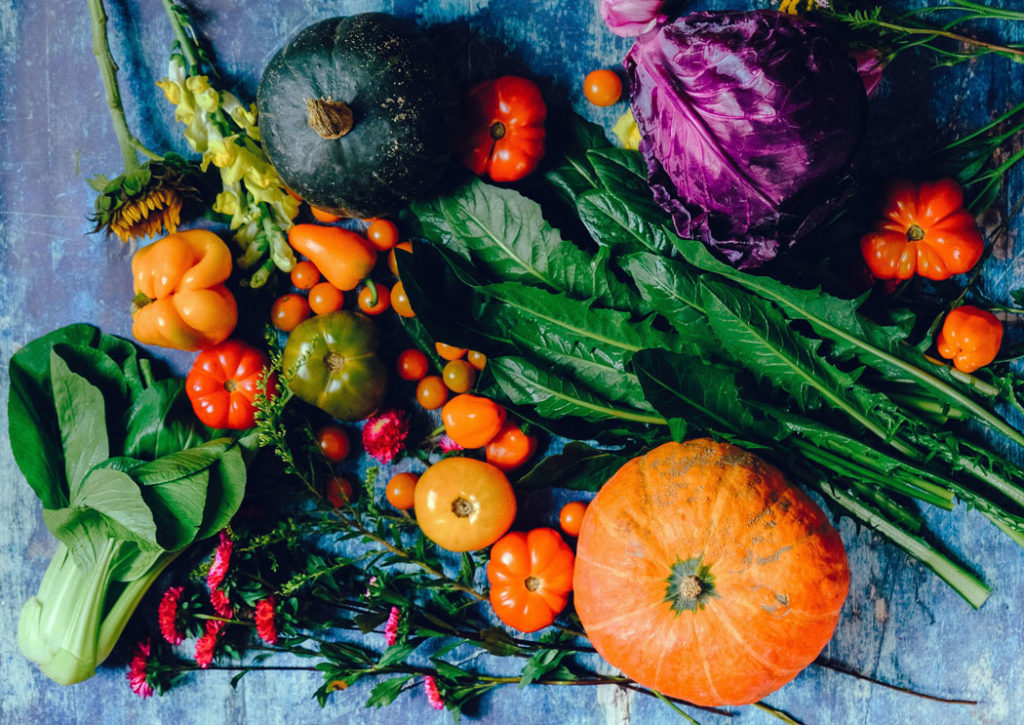
I found spring in gardening. I didn’t pay much attention to the soil or its smell or the seasons in general before my husband and I came back to Iowa to start our community supported agriculture (CSA) garden. I didn’t pay any attention to the land, though farming is what I came from and what I grew up with.
Only now am I starting to get the feel of “reconnected to the land.” What we put in our mouths nourishes our lives, and the soil is the start of all nourishment. More than that, being awake and aware is the only way we know we’re alive; eating is acknowledging life.
Consider gardening for a summer, even if it’s only two tomato plants and a patch of lettuce. If that’s not an option for you, try the next best thing: a local CSA. These growers sell advance shares of their harvest directly to their members. For a set price, CSA members receive weekly sharesof produce throughout the season. It’s a lot like owning your own garden:
• You get to experience the unbeatable taste of homegrown food.
• You get to see what vegetables look like before they’re all waxed up and packaged up for display.
• You get to try varieties (unbelievably tasty varieties) that you can’t get in the store—varieties that are grown because they taste phenomenal and brim with vitamins, and not because they ship well and ripen on the shelf.
• You get to support and know local growers who care about you and your family and who are stewards of the land we all depend on.
• You get to tour the garden during an open house, inhale the fresh smell of the ground that feeds you, and show your children what Brussels sproutslook like when growing (I didn’t find out until I was 25).
Those are the obvious benefits of CSA, the benefits that first appealed tome. Every year I find more reasons why I like CSA, and this year, I’m beginning to think that I missed the best point of all: Joining a CSA is like eating from a garden, and when you eat from a garden, you eat by the seasons.
The seasons are fundamental to life in the Midwest. When it’s winter,it snows and we wear coats and forget all about swimming at the lake or barbecuing for the Fourth of July. Yet we eat as if summer never passed, with cucumbers,zucchini, broccoli, green beans, asparagus, and peppers proudly stacked along the aisles of our grocery stores. Over the last few decades, genetic engineering,faster transportation, and better preservation technology have transformed our food delivery system so we eat as though seasons don’t matter.
What I learned from being part of a CSA is that while having year-round grocery store access to fresh fruits and vegetables seems like a good thing, it comes with a price, and in the end it puts us asleep, deadens us to the real costs of food convenience. We waste fuel and energy in transporting out-of-season produce to the winter states, and eating long-distance encourages large-scale gardening. This “industry” of commercial farming can be brutal on our soils and burn through petrochemicals. Even organic farms can be industrial,and that’s one more reason to consider eating locally by the season—you’ll know exactly how your farmer treats the soil and the vegetables that go into your mouth.
And those are just the obvious losses that accompany our modern food systems.When we start to ignore the seasons, to deaden ourselves to the rhythms of growth, we lose even more.
For thousands of years, our ancestors were connected to the food they ate—first through hunting and gathering and later through agriculture. From the vantage point of history, it’s been a very few years indeed since we lost touch with the growing process, gave up the sense of renewal that comes from watching the greens come up with the lengthening days.
A Loss of Nutrients
The USDA has data showing that recently grown crops have up to 38 percent less protein, calcium, vitamin C, phosphorus, iron, and riboflavin than these same crops had in decades past.
Part of this problem is that we’re eating out of season, consuming produce that never fully ripened in the field. Not only are we growing nutrient-poor vegetable varieties and harvesting them before their prime, but we’re growing them in nutrient-poor soil. While we sleep through the seasons we deadenour health.
Obesity: The Loss of Contentment
The people in our society aren’t getting full enough. It seems funny saying that, after listening to reports of the obesity epidemic in our country.Aren’t full tummies the problem? Not exactly. If we keep eating empty food, then we’ll keep experiencing the desire to eat, we’ll never know fullness, and we’ll overeat.
But there’s more than getting our nutrients to help us feel satisfied—there’s taste. In the culinary world, chefs and connoisseurs are beginning to bemoan the loss of variety and flavor that has accompanied our modern food system.It’s this full-bodied taste that deep down we crave, and it’s thisc raving that drives us to keep eating even though we may not know what we’researching for.
Every year I find more reasons to like CSA, and this year it was eating ins eason. Eating in season brings us all closer to the land. My family’s CSA, Choice Earth, describes the choice I made when I came back to gardening.It was the choice of returning to the earth, of going back to the land, to the soil, to a home I almost forgot I had even known.
For an extensive list of CSAs, see CSAs in Iowa.
To read a longer version of this article and other writings by Jocelyn Engman, visit her blog at choiceearth.blogspot.com.
